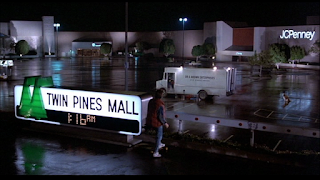
Braveheart
1995
Director: Mel Gibson
Writer: Randall Wallance
177 Minutes
Braveheart is an epic tale of William Wallace (Mel Gibson), a Scottish Rebel, standing up against the oppressive English rule. Though Mel has had problems of his own, he was at the top of his game in making this film. It won five Academy Awards including cinematographer, director, sound effects, makeup, and best picture.
But, this film is not about William Wallace. It’s about Robert the Bruce (Angus MacFadyen). Robert the Bruce, a Scottish aristocrat and first in line for the Scottish thrown, is one of the greatest sub-heroes in the history of cinema.
See, it doesn’t matter what William Wallace did because in the end, his ultimate journey was not about freedom, but more about reconnecting with his wife. He came back to raise a family and never wanted to be involved. After his wife’s death, he gathered allies against Edward the Longshanks (Patrick McGoohan) and pushes English soldiers past York, but he doesn’t change his goal, nor change as a character. And we, the audience, need change.
In the scene above, Robert the Bruce has gathered what’s left of the Scottish Army on the battlefield, facing hundreds of English soldiers, and is certain to surrender to the English officers. More so, for the entire film, Robert the Bruce has laid down his sword, his outspoken voice, and his freedom for English titles and land given by Longshanks. But in reality, he wants to unite his country. He wants to feel inspired. He wants to rise up and speak out against an evil country that raped, murdered, and demoralized his people.
But, he can’t. He needs William Wallace. He needs him in order to change. Even though, on the other side of the country, Longshanks feels that if he stops Wallace, the rebellion will die. Longshanks knows Wallace is their leader and having Robert the Bruce restrained, he understands once Wallace is dead, Longshanks can control his country again.
Thus, Wallace is captured. Wallace is tried. Wallace is beheaded.
End of story?
No.
When the hero dies in a film, you often need a sub-hero to carry on the hero’s message. It’s the sub-hero, like Robert the Bruce, who is often the protagonist that changes in the end. Robert the Bruce was a coward, politician who becomes a heroic, nobleman.
Robert the Bruce changes. We change.
“You’ve bled with Wallace! Now, bleed with me,” he exclaims before drawing his sword and charging the stunned English officers.
William Wallace is a hero, but if his death were the end of the film, there would be no hope. His accomplishments and secondary quest for freedom would have died with him. But since we have Robert the Bruce inspiring, leading, and commanding Scottish troops into battle – just as Wallace did – the message, hope, and freedom lives on.
And that’s what we ultimately want. That's what we ultimately need.














